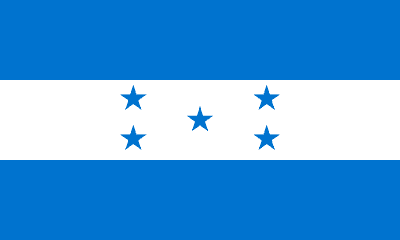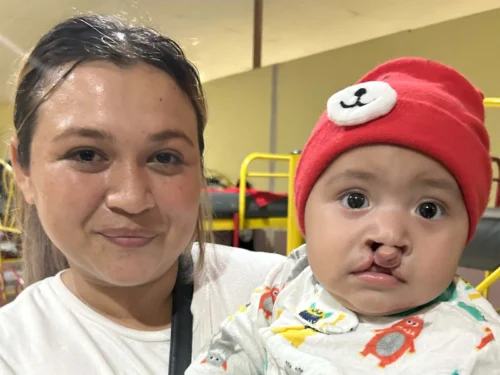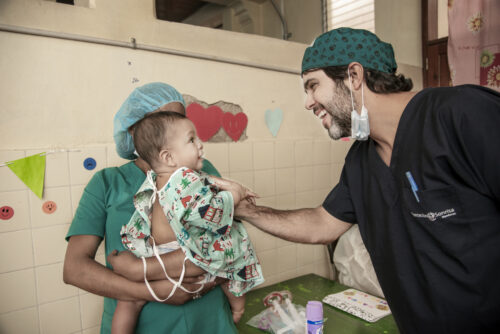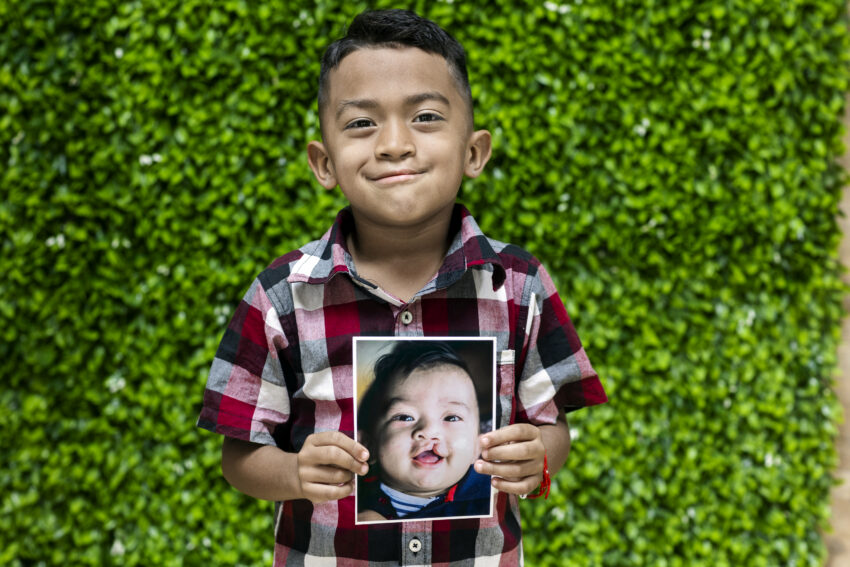
Operation Smile has provided surgical and comprehensive care for around 7,000 patients in Honduras.
THE NEED
One in 500 children are born with a cleft condition. It is estimated that, worldwide, a child is born every three minutes with a cleft condition — about one in every 500 to 750 births.
Shortfall of health workers. Honduras has just 14 specialist surgical workers per 1,000 people, which falls short of the target set by the Lancet Commission on Global Surgery of 20 surgical providers per 1,000 people. The brain drain from Honduras exacerbates the shortfall of health workers. It has been estimated that over 5,000 medical professionals emigrated between 1996 and 2010.
High levels of inequality. Operation Smile’s survey revealed that 57% of patients arriving at Operation Smile programs in Honduras live in poverty. In 2019, the poorest 20% received 3.6% of income, while the richest 20% received 52.2% — almost 15 times as much. High levels of inequality contribute to significant healthcare disparities, which puts children living with cleft conditions at an even greater risk.
Financial burden. In Honduras, nearly half of the population faces the risk of catastrophic expenditure for surgical care, with 32% at risk of impoverishing expenditure due to high out-of-pocket payments, which often prevent families from accessing necessary care. This issue is further illustrated by data from Operation Smile.
According to Operation Smile’s survey, 86% of patients arriving at Operation Smile programs have no health insurance, and 89% of patients arriving at Operation Smile programs said they could not have received surgery without Operation Smile. Additionally, 38% of patients arriving at Operation Smile programs do not have a hospital within two hours of their home. The Lancet Commission proposed that at least 80% of the population should live within two hours of a hospital.
Barriers to education and employment. According to Operation Smile’s survey, 24% of patients arriving at Operation Smile programs in Honduras said that their condition limited their school attendance. Additionally, 51% of caregivers stay home with their children, resulting in a significant financial burden on the family.
OUR FORMULA FOR TRANSFORMATION
Operation Smile’s formula for transformational impact combines care delivery & capacity-building.
Education programs are at the center of Operation Smile’s strategy to increase access to surgery closer to the patient’s home.
Each surgical program brings together providers from all over the world for a unique opportunity to share knowledge and innovate. This type of bi-directional learning is essential to redistributing knowledge between providers and building capacity in the areas of greatest need.
Our work in health infrastructure & equipment addresses structural barriers to care and helps build robust health systems. Operation Smile’s research & innovation efforts inform all aspects of our decision-making and allow us to have a comprehensive understanding of the impact our programs have on patients.
HUB & SPOKES
To ensure that every child has access to care close to home, we equip the providers within our patients’ communities with skills and resources to deliver high-quality care. We build the needed capacity by harnessing the talent and resources that exist within the country, usually in the bigger cities, the hubs, to train providers in under-resourced areas, the spokes, where most patients lack access to care.
In Honduras, we deliver care at our hub, Hospital María de Especialidades Pediátricas in Tegucigalpa and at our spokes at Hospital Juan Manuel Galvez in Gracias and Hospital de Occidente in Santa Rosa de Copan.
We provide surgical care at our hospital partners Hospital Leonardo Martínez in San Pedro Sula and Hospital San Felipe in Tegucigalpa.
Operation Smile provides comprehensive care at our Care Centers in Tegucigalpa and San Pedro Sula.
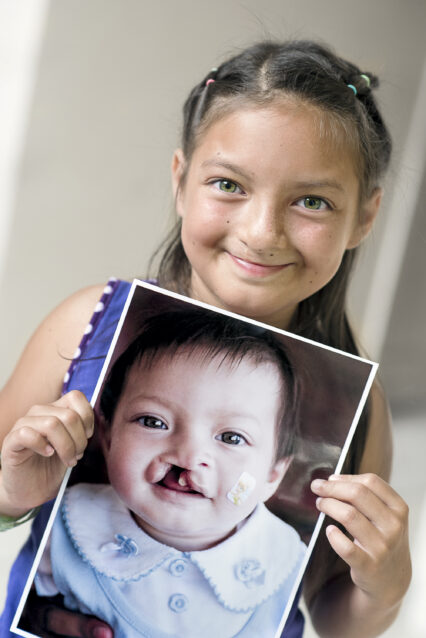
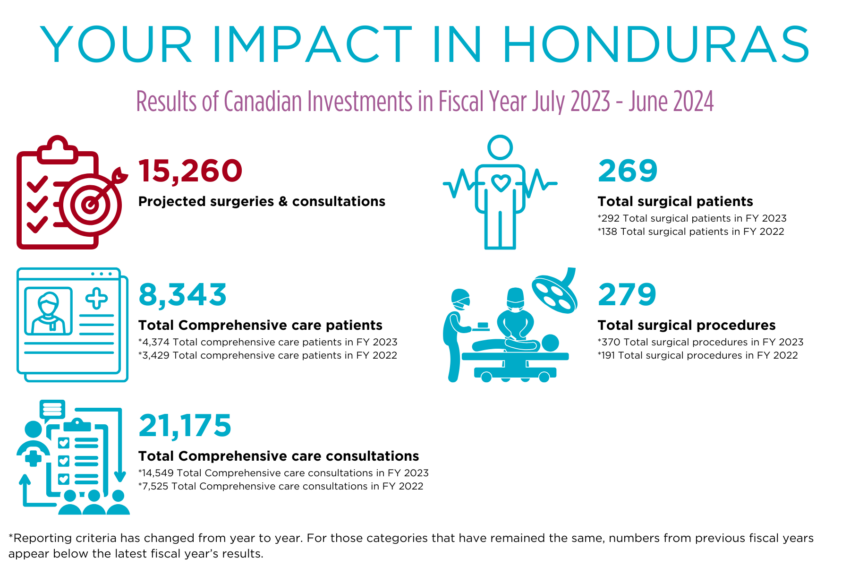
During Fiscal Year July 2024-June 2025, Operation Smile Canada has committed to invest $867,465 CAD, accounting for 62% of Colombia’s total projected budget for the fiscal year, directly contributing to providing surgical care to over 310 patients and training and education for around 100 health workers.
Cleft Care Programs
This year, we will deliver surgical care to around 310 patients. Operation Smile will expand comprehensive cleft care services by providing consultations in oral health (780 patients), nutrition (380 patients), speech therapy (460 patients), ENT (24 patients), pediatrics (1,140 patients) and psychosocial care (1,560 patients).
Education
Operation Smile will provide educational and training opportunities to around 100 medical providers. We will offer training in the fields of plastic surgery, anesthesia, oral health, nursing and speech therapy. Operation Smile will hold American Heart Association courses for health workers across various specialties.
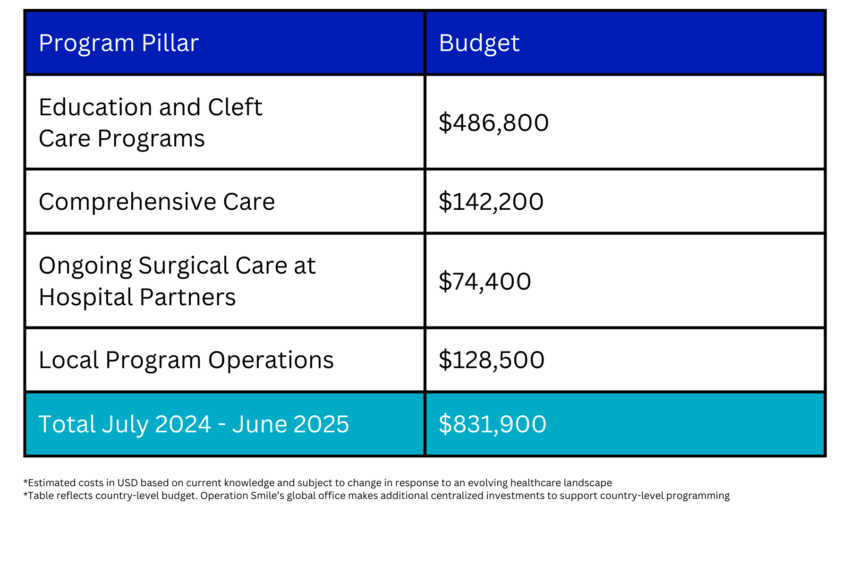
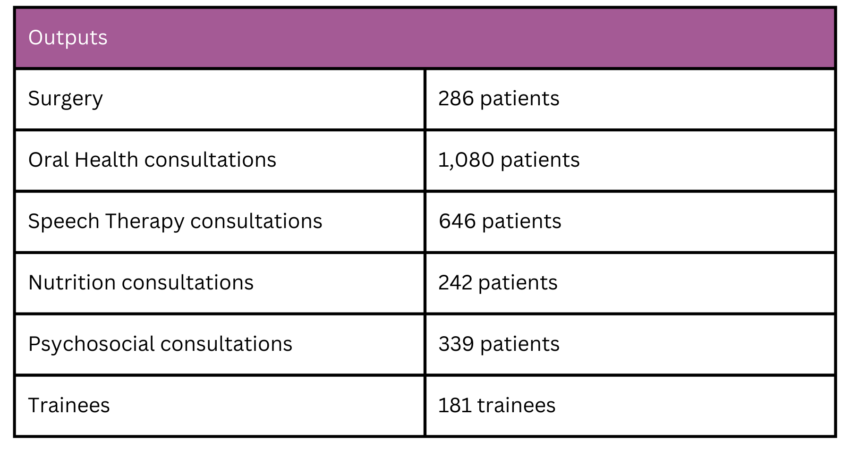
FIVE-YEAR VISION
Over the next five years, Operation Smile will provide surgery to approximately 1,950 patients. We will deliver consultations to over 9,000 patients.
We will continue to provide education and training opportunities to medical providers, ensuring that our patients have access to the best possible care. In the next five years, Operation Smile will offer training opportunities to around 640 health workers across various specialties.
Operation Smile will establish an additional comprehensive care site in Santa Rosa de Copan to expand access to care.

